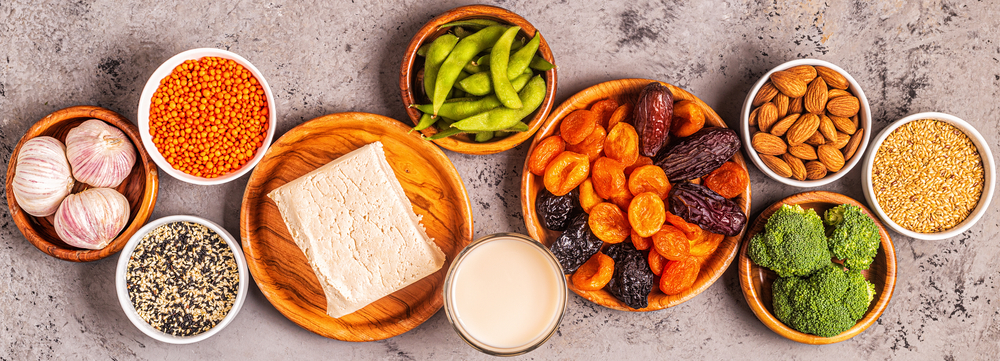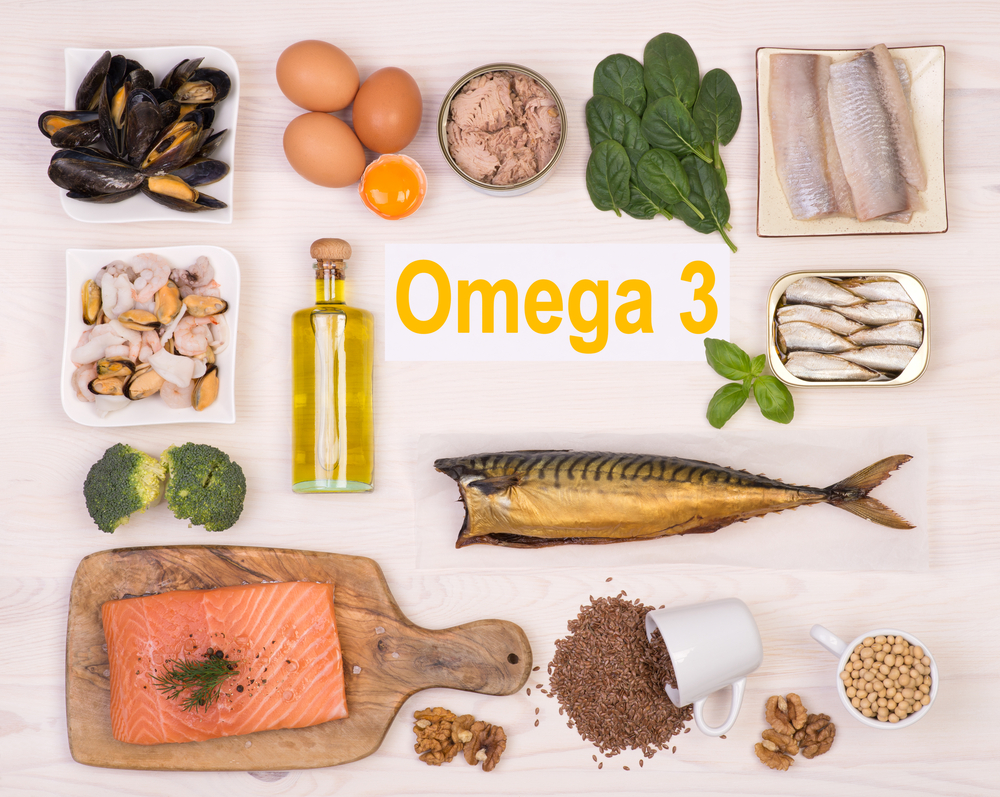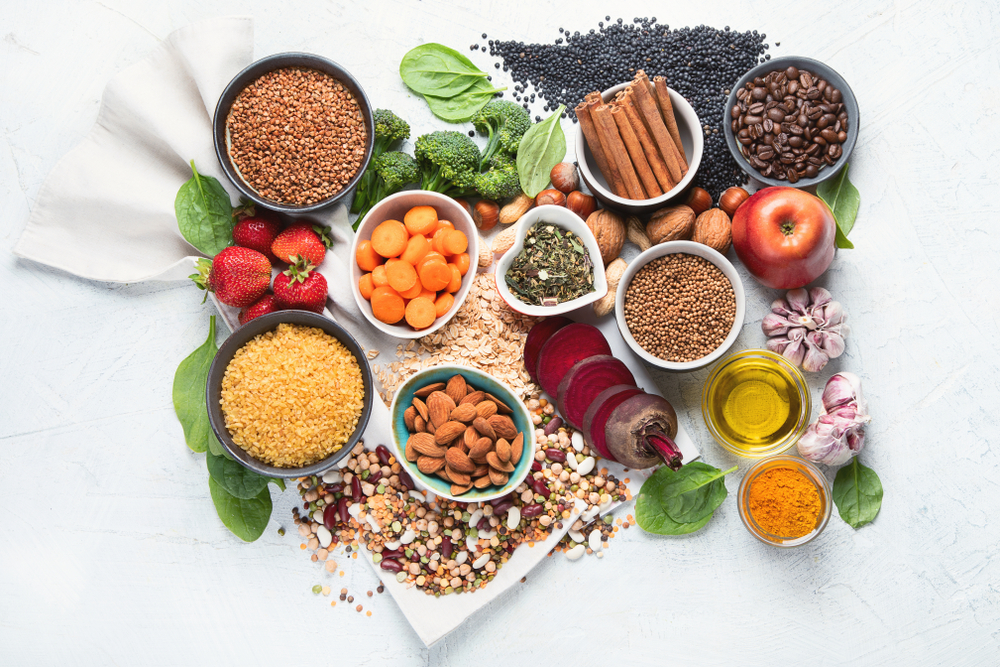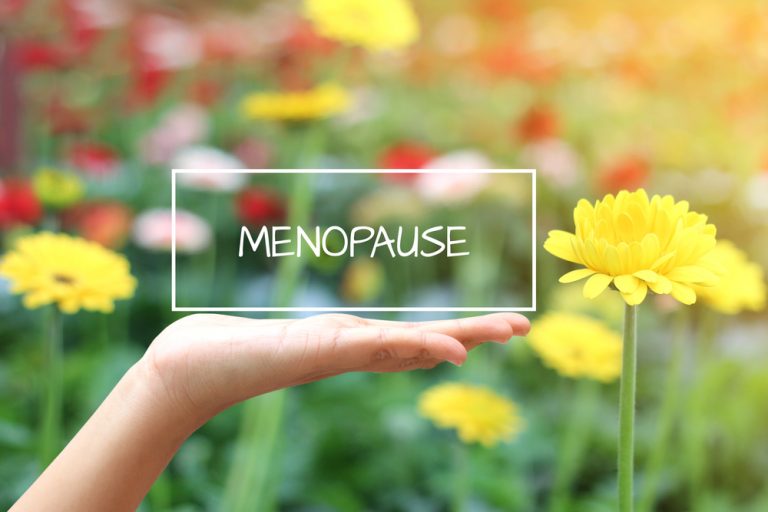For many women, menopause is a difficult time, which usually falls between 45 and 55 years of age and is associated with a gradual loss of fertility. Numerous physical and hormonal changes taking place in the body often translate into a worse mental state. However, the menopause is not only associated with the cessation of menstruation. One should be aware that fluctuations in the level of sexual hormones also lead to physiological changes.
During the menopause, women are more exposed to
- overweight
- osteoporosis
- cardiovascular diseases
- insulin resistance or diabetes
- the decrease of cognitive abilities
A properly planned diet during menopause is not only intended to alleviate the symptoms of menopause, e.g. hot flashes and irritation but also to protect against diseases whose risk increases due to hormonal changes.
A diet rich in phytoestrogens - a way to hormonal fluctuations
Phytoestrogens are natural plant substances that imitate the action of estrogen - the female sex hormones - and thus allow a smoother transition through the menopause. Phytoestrogens can significantly reduce hot flushes, but they are not optimally effective for all women.
However, they increase bone density, especially in the lumbar spine and femur, and increase the synthesis of vitamin D necessary for the prevention of osteoporosis.
The results of scientific research show that an adequate supply of phytoestrogens reduces the concentration of markers associated with the risk of heart disease. It also turns out that they affect the more efficient functioning of the nervous system, improve the ability to remember, process information and make decisions.
The supply of phytoestrogens from natural sources has a positive effect on blood glucose levels, protein glycosylation and insulin sensitivity of tissues in postmenopausal women. This means that they help both prevent and alleviate diabetes.
Natural sources of phytoestrogens are soybean and its preparations, linseed oil, linseed, lentils, broad beans, hops, whole grain products, sunflower seeds, onions, garlic, cherries, pears, apples, coffee and tea. They should not be missing from the diet during the menopause.

Omega-3 diet - healthy heart and good mood
Omega-3 fatty acids have many functions in the body and are responsible for its overall homeostasis. Fats from the omega-3 family have an anti-inflammatory effect, which helps prevent many diseases associated with ageing. For women in menopause and after menopause they are particularly important because of their cardioprotective effects.
Omega-3 fatty acids reduce the level of total cholesterol, LDL cholesterol and increase good HDL cholesterol level. They are a dietary component reducing the risk of atherosclerosis, infarction, thrombosis, hypertension and other cardiovascular diseases associated with damage to blood vessels. They increase the sensitivity of tissues to insulin and in result prevent diabetes. Moreover, they have a positive effect on the nervous system. They alleviate states of tension, reduce irritation and mood deterioration. They improve cognitive abilities, concentration and memory.
Sources of omega-3 fatty acids, which should not be missing in the diet during menopause, are fatty sea fish (e.g. salmon, herring, mackerel, tuna, sardines), seafood, linseed oil and linseed, rapeseed oil, walnuts, chia seeds.

Anti-inflammatory diet - antioxidants for treatment and prevention
The main task of an anti-inflammatory diet is to prevent the development of cancer and to protect against diseases resulting from chronic inflammation of low intensity, which can take place in the body for years. It consists of products with strong antioxidant potential.
A diet with a high content of antioxidants can be helpful for women during the menopause because it has a positive effect on all disease units associated with menopause, reducing the risk of disease and supporting their treatment.

The ingredients on which the anti-inflammatory diet is based are
- vegetables - especially green leafy vegetables (spinach, kale), crossbred vegetables (cauliflower, broccoli, Brussels sprouts, cabbage), carrots, beets, onions, beans, seaweed
- fish and seafood
- olive oil, rapeseed oil, nuts, seeds, flaxseed, avocado
Soya products, herbs and spices as well as green and white tea should also be included in the menu of the anti-inflammatory diet during menopause.






